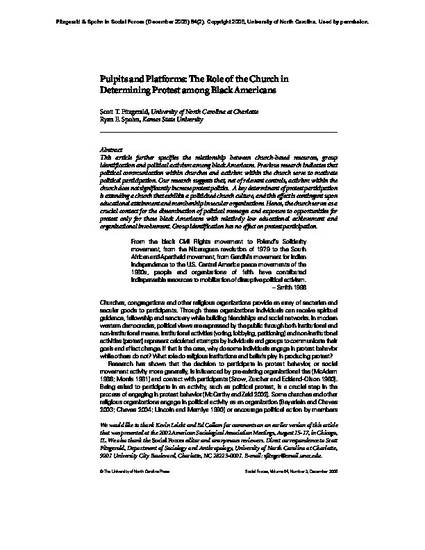
This article further specifies the relationship between church-based resources, group identification and political activism among black Americans. Previous research indicates that political communication within churches and activism within the church serve to motivate political participation. Our research suggests that, net of relevant controls, activism within the church does not significantly increase protest politics. A key determinant of protest participation is attending a church that exhibits a politicized church culture, and this effect is contingent upon educational attainment and membership in secular organizations.Hence, the church serves as a crucial context for the dissemination of political messages and exposure to opportunities for protest only for those black Americans with relatively low educational achievement and organizational involvement. Group identification has no effect on protest participation.
Available at: http://works.bepress.com/ryan_spohn/49/

Published by Fitzgerald & Spohn in Social Forces (December 2005) 84(2). Copyright 2005, University of North Carolina. Used by permission.